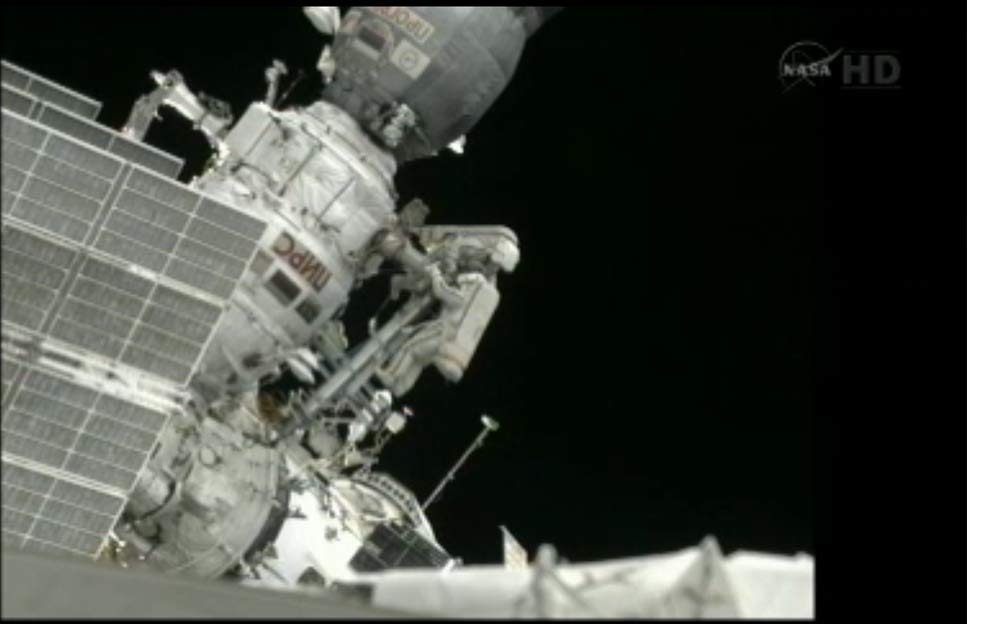Spacewalkers' Amateur Satellite Toss Stalled at Space Station

This story was updated at 1:07 p.m. EDT.
Two Russian cosmonauts hit a snag while trying to toss an amateur satellite into orbit from the International Space Station today (Aug. 3) because of a missing antenna on the boxy craft, NASA officials say.
Russian cosmonauts Sergei Volkov and Alexander Samokutyaev were scheduled to deploy the amateur radio satellite, known as ARISSat-1 or Radioskav-V, off the back side of the station's Russian segment at the beginning of the spacewalk. But, the activity was halted after mission controllers noticed only one antenna on the 57-pound satellite, rather than two, as they had expected.
The ARISSat-1 satellite arrived at the space station on a Russian Progress robotic supply ship, and the onboard station crew assembled it and installed the antennas in February, said NASA spokesman Josh Byerly.
"There are supposed to be two, but one of them is definitely missing," Byerly told SPACE.com. "The ground teams will only get about 50% of their data if it is deployed as is, so the question is whether that is good enough or whether they want to go try to track down the missing antenna inside the station." [Inside and Out: The International Space Station]
Flight controllers at Mission Control in Houston and Moscow are currently discussing the possibility of releasing the satellite as is at a later time during today's spacewalk.
Volkov and Samokutyaev temporarily stored the ARISSat-1 outside the station's Pirs airlock until ground teams give the go-ahead to proceed with the satellite's deployment. Volkov expressed concern about losing time on the other planned tasks, and mission managers advised the spacewalkers to continue with the rest of the activities scheduled for today's excursion.
Get the Space.com Newsletter
Breaking space news, the latest updates on rocket launches, skywatching events and more!
Flight engineers Sergei Volkov and Alexander Samokutyaev began today's planned six-hour spacewalk at 10:50 a.m. EDT (1450 GMT).
The ARISSat-1 satellite was designed and built by amateur radio operators to help drum up interest in scientific and technological careers among students.
The deployment of the satellite will be the first test flight of a proposed series of small educational satellites developed as a cooperative effort between NASA, the Radio Amateur Satellite Corp. (AMSAT), Amateur Radio on the International Space Station (ARISS), and the Russian Federal Space Agency.
You can follow SPACE.com staff writer Denise Chow on Twitter @denisechow. Follow SPACE.com for the latest in space science and exploration news on Twitter @Spacedotcom and on Facebook.
Join our Space Forums to keep talking space on the latest missions, night sky and more! And if you have a news tip, correction or comment, let us know at: community@space.com.

Denise Chow is a former Space.com staff writer who then worked as assistant managing editor at Live Science before moving to NBC News as a science reporter, where she focuses on general science and climate change. She spent two years with Space.com, writing about rocket launches and covering NASA's final three space shuttle missions, before joining the Live Science team in 2013. A Canadian transplant, Denise has a bachelor's degree from the University of Toronto, and a master's degree in journalism from New York University. At NBC News, Denise covers general science and climate change.









